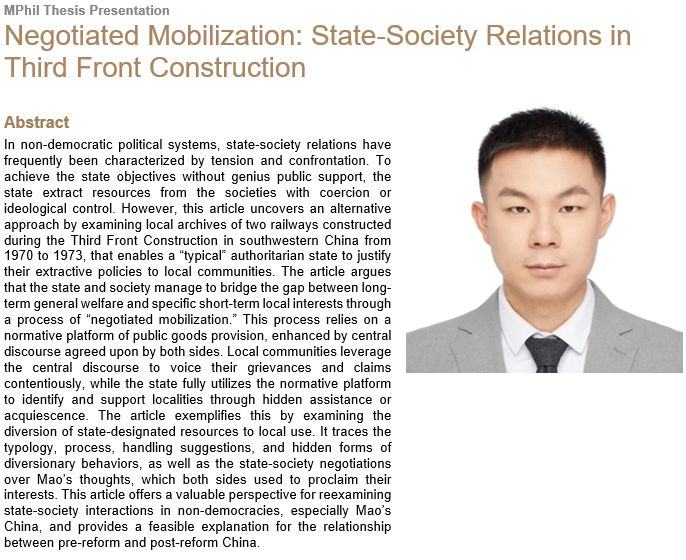Abstract
In non-democratic political systems, state-society relations have frequently been characterized by tension and confrontation. To achieve the state objectives without genius public support, the state extract resources from the societies with coercion or ideological control. However, this article uncovers an alternative approach by examining local archives of two railways constructed during the Third Front Construction in southwestern China from 1970 to 1973, that enables a “typical” authoritarian state to justify their extractive policies to local communities. The article argues that the state and society manage to bridge the gap between long-term general welfare and specific short-term local interests through a process of “negotiated mobilization.” This process relies on a normative platform of public goods provision, enhanced by central discourse agreed upon by both sides. Local communities leverage the central discourse to voice their grievances and claims contentiously, while the state fully utilizes the normative platform to identify and support localities through hidden assistance or acquiescence. The article exemplifies this by examining the diversion of state-designated resources to local use. It traces the typology, process, handling suggestions, and hidden forms of diversionary behaviors, as well as the state-society negotiations over Mao’s thoughts, which both sides used to proclaim their interests. This article offers a valuable perspective for reexamining state-society interactions in non-democracies, especially Mao’s China, and provides a feasible explanation for the relationship between pre-reform and post-reform China.

